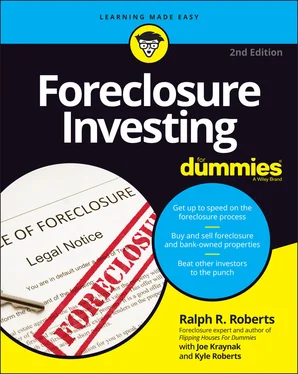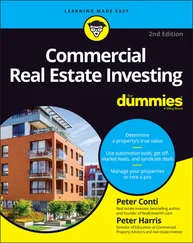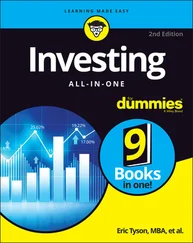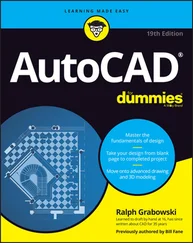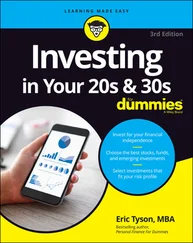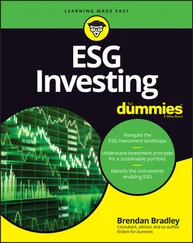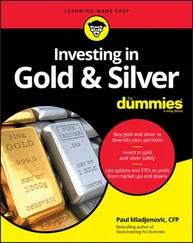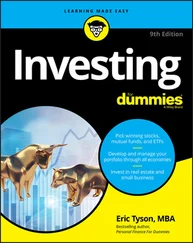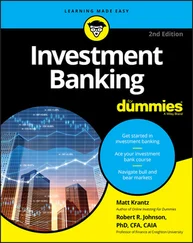Ralph R. Roberts - Foreclosure Investing For Dummies
Здесь есть возможность читать онлайн «Ralph R. Roberts - Foreclosure Investing For Dummies» — ознакомительный отрывок электронной книги совершенно бесплатно, а после прочтения отрывка купить полную версию. В некоторых случаях можно слушать аудио, скачать через торрент в формате fb2 и присутствует краткое содержание. Жанр: unrecognised, на английском языке. Описание произведения, (предисловие) а так же отзывы посетителей доступны на портале библиотеки ЛибКат.
- Название:Foreclosure Investing For Dummies
- Автор:
- Жанр:
- Год:неизвестен
- ISBN:нет данных
- Рейтинг книги:5 / 5. Голосов: 1
-
Избранное:Добавить в избранное
- Отзывы:
-
Ваша оценка:
- 100
- 1
- 2
- 3
- 4
- 5
Foreclosure Investing For Dummies: краткое содержание, описание и аннотация
Предлагаем к чтению аннотацию, описание, краткое содержание или предисловие (зависит от того, что написал сам автор книги «Foreclosure Investing For Dummies»). Если вы не нашли необходимую информацию о книге — напишите в комментариях, мы постараемся отыскать её.
Foreclosure Investing For Dummies,
Foreclosure Investing For Dummies,
Foreclosure Investing For Dummies — читать онлайн ознакомительный отрывок
Ниже представлен текст книги, разбитый по страницам. Система сохранения места последней прочитанной страницы, позволяет с удобством читать онлайн бесплатно книгу «Foreclosure Investing For Dummies», без необходимости каждый раз заново искать на чём Вы остановились. Поставьте закладку, и сможете в любой момент перейти на страницу, на которой закончили чтение.
Интервал:
Закладка:
Stepping into the foreclosure process during the pre-auction stage provides you some of the best opportunities to assist the homeowners and purchase a property at an attractive price. In Part 3, I show you exactly how to research and buy homes before homeowners lose them in foreclosure.
Bidding on properties at foreclosure auctions
Some investors prefer to step into the process at the auction stage, because they’re uncomfortable dealing with distressed homeowners, who are often in a state of denial and unwilling to sit down with an investor to discuss their options. At the auction stage, you buy the property in a less-emotional atmosphere. In most cases, however, you still have to deal with the homeowners when the time comes to take possession of the property.
Now, don’t run out and start scooping up properties at foreclosure auctions just yet. Uninformed investors often get burned by diving in before they learn to dog paddle. Foreclosure auctions are packed with peril, often trapping novice investors into making costly mistakes such as these:
Buying a property without researching the title: A title history reveals who really owns the property, the amount currently owed on the property, and the priority of the mortgages: tax lien (top priority), first mortgage (next in line), second mortgage, and so on. Do your research, as explained in “ Performing Your Due Diligence” later in this chapter and in greater detail in Chapter 8.
Buying a junior lien thinking that it’s a senior lien: When you buy properties at a foreclosure sale, you’re really buying mortgages. The first mortgage on a property is called the senior lien, which gives the buyer the most control of the property. Additional claims against the property are called junior liens, which often get wiped out during foreclosure. Buy a junior lien by mistake and you may have just bought yourself a worthless piece of paper. Only thorough research of the title, as explained in Chapter 8, can steer you clear of making this common and potentially very costly mistake.
Buying a property without inspecting it: A house may look valuable on paper, but until you see it with your own eyes, you won’t know for sure. The house may have significant fire damage, toxic materials, foundation problems, or a host of other defects. Check out Chapter 8for details. Your eyes or no buys. Never, ever buy a property without seeing it. Later, you may have a trusted member of your team check out properties for you, but when you’re getting started, do the checking yourself.
Paying more for a property than it’s worth: In the heat of an auction, your enthusiasm to outbid other investors can make you highly susceptible to paying more for a property than it’s worth. This approach almost guarantees that you’ll end up taking a loss on the property.A MORATORIUM ON FORECLOSURES?The COVID-19 pandemic gave foreclosure investors something new to think about: moratoriums on foreclosures and evictions. The Coronavirus Aid, Relief, and Economic Security (CARES) Act, signed into law on March 27, 2020, prohibited banks from foreclosing on government-backed loans. That prohibition expired on July 31, 2021.The CARES Act also gave homeowners with government-backed loans the right to ask for and receive forbearance, which enabled them to stop making payments for a specified period. Although, officially, the relief applied only to federally owned or federally backed loans, many private lenders followed suit. As a result, foreclosure investors had far fewer opportunities, and some were trapped in limbo; they owned the property but couldn’t evict the previous owners or move forward with repairs and renovations, and they were still responsible for paying property taxes and insurance.Although the COVID-19 foreclosure and eviction moratoriums may be over by the time you’re reading this book, keep in mind that they’re always a possibility, and they’re probably more likely to occur now that there’s a precedent for them. They can happen at the federal, state, and local levels. This warning shouldn’t discourage you from investing in foreclosures; it’s just another risk to keep in mind.
Failing to account for the redemption period: Most states have a mandatory redemption period, during which time the homeowners retain possession of the property and can redeem the title by paying off the mortgage in full, along with any penalties and back taxes. You need to have enough cash reserves on hand to pay the property taxes on the property and to insure the property during this time. If you don’t pay the property taxes, another investor may be able to purchase a tax lien or deed at a tax sale and take control of the property; tax liens have priority (even over first mortgages). You also need to insure the property, because you’re not covered by the homeowners’ insurance policy (if they have one).
 Never bid on a property at auction until you’ve done your homework. Reading this book from cover to cover is a start. Brush up on the foreclosure rules and regulations in your area, and always research a property thoroughly before bidding. Research the title, and inspect the house as closely as possible with your own two eyes, as shown in Chapter 8.
Never bid on a property at auction until you’ve done your homework. Reading this book from cover to cover is a start. Brush up on the foreclosure rules and regulations in your area, and always research a property thoroughly before bidding. Research the title, and inspect the house as closely as possible with your own two eyes, as shown in Chapter 8.
Buying properties after the sale
If working with homeowners before auction and bidding against other investors at an auction don’t appeal to you, you can profit from investing in foreclosures after the foreclosure sale.
If nobody at the auction offers the minimum acceptable bid, the lender buys back the mortgage. If the state has a mandatory redemption period, the lender waits until the period expires and then passes the property to its REO department (sometimes referred to as the OREO [Other Real Estate Owned] department, not to be confused with the cookie), which prepares the property for resale and typically hires a mortgage broker to place it back on the market. By dealing with a lender’s REO department or its mortgage broker, you may be able to purchase the property at a price that’s discounted far enough below market value to turn a profit of 20 percent or more.
The chapters in Part 4explain how to find and buy REO properties and the following other properties that government institutions and law enforcement agencies take possession of and then often sell at deep discounts:
Properties seized due to nonpayment of taxes
Properties seized by customs and law enforcement agencies because they were paid for with profits from illicit activities
Houses that were repossessed when homeowners defaulted on HUD (U.S. Department of Housing and Urban Development) or VA (U.S. Department of Veterans Affairs) loans
Fannie Mae and Freddie Mac properties that were repossessed and then turned over to these government-sponsored loan programs
Bankruptcy properties that are being liquidated to pay off loans
Properties that the U.S. Department of Transportation purchased for road improvements and must dispose of after completing the improvements
 When you buy a property from the government or a bank, don’t assume that you’re getting a good deal. Homes are typically sold in their “as is” condition. You must still research the title carefully and inspect the property with your own two eyes. If you see ads or late-night infomercials selling lists of bank-owned properties, don’t fall for the hype; these lists are usually outdated long before they arrive in your mailbox.
When you buy a property from the government or a bank, don’t assume that you’re getting a good deal. Homes are typically sold in their “as is” condition. You must still research the title carefully and inspect the property with your own two eyes. If you see ads or late-night infomercials selling lists of bank-owned properties, don’t fall for the hype; these lists are usually outdated long before they arrive in your mailbox.
Интервал:
Закладка:
Похожие книги на «Foreclosure Investing For Dummies»
Представляем Вашему вниманию похожие книги на «Foreclosure Investing For Dummies» списком для выбора. Мы отобрали схожую по названию и смыслу литературу в надежде предоставить читателям больше вариантов отыскать новые, интересные, ещё непрочитанные произведения.
Обсуждение, отзывы о книге «Foreclosure Investing For Dummies» и просто собственные мнения читателей. Оставьте ваши комментарии, напишите, что Вы думаете о произведении, его смысле или главных героях. Укажите что конкретно понравилось, а что нет, и почему Вы так считаете.
